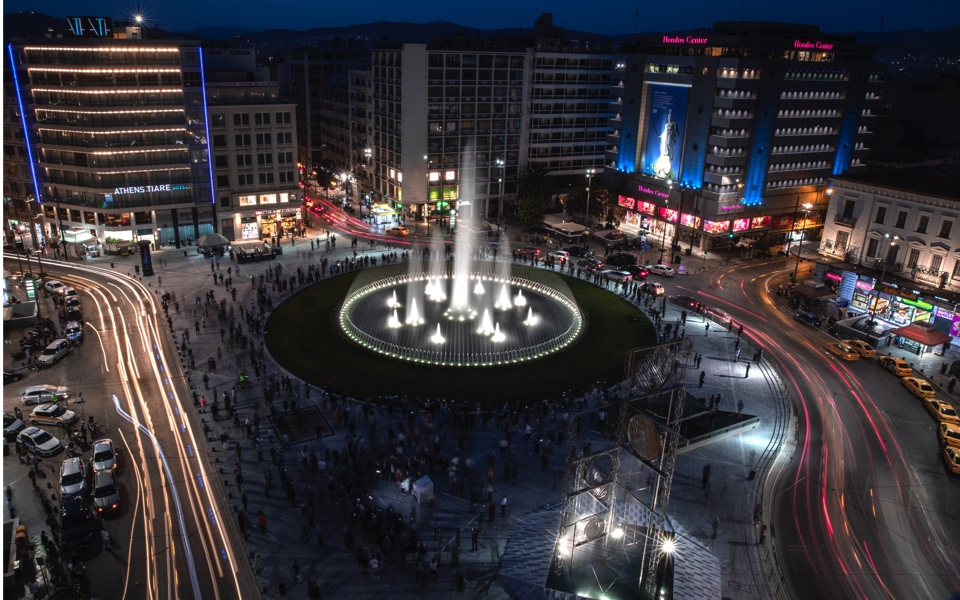The apology and the thank you

Athens Mayor Kostas Bakoyannis apologized for the crowds that gathered for the unveiling of the new fountain at Omonia Square last week. He admitted that, despite the best of intentions, the event in the middle of the coronavirus crisis, at a time when the state is trying to drive home the continued need to maintain social distancing (including with fines), was a mistake.
“We planned the opening without ceremony, fiestas or a ‘date’ with citizens precisely because we were concerned that it would draw too many people, but we were mistaken nevertheless, judging by the enthusiasm and spontaneous attendance it drew – so much so that I’m having to apologize now. And I’m doing so sincerely, without excuses,” he said in an interview with Kathimerini.
The fact that the Athens mayor acknowledges his mistake does not mean that he’s also free of it. His response does him an honor, however. He made a poor judgment call, but is not trying to defend it. Instead, he’s apologizing for it. His instructive and reasonable stance is also clever from a public relations perspective.
Apart from the apology for the Omonia Square incident, Bakoyannis also made another welcome move, by extending a “big thank-you” to the other political forces on the Municipal Council for their support of the square’s rejuvenation.
This is not the first time the Athens mayor has thanked his political rivals. He did so a year ago when SYRIZA’s mayoral candidate Nasos Iliopoulos and PASOK’s Pavlos Geroulanos visited Bakoyannis’ campaign kiosk in central Athens to express their support after it had been vandalized by anarchists.
Bakoyannis may head the municipal authority, but there are also other political and social forces involved which represent large sections of the city’s populace with whom he has to get along. It is not just a matter of their numbers, which cannot be ignored in a democracy; it is also about the symbolism conveyed by intentions, comments and actions. Political civility matters. It contributes to social cohesion, the smooth functioning of democracy and even the continuity of initiatives and projects – and it costs nothing.
When you plan something and are able to have a reasonable, concerted and productive dialogue with your rivals, to agree on decisions and actions that ensure the initiative will be accomplished faster and more efficiently, this consensus by the other side is something that needs to be acknowledged. That is the best way to ensure that the initiative will be well received by everyone. The leader at that time may get most of the credit, but the success will be shared by everyone – as it should.





